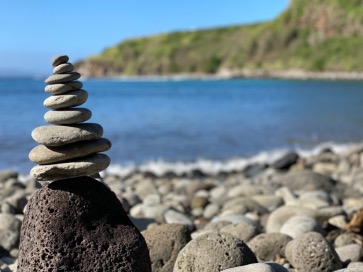
Blog post by Friend in Residence, Kriss Miller
Week 4, The Future of History, gave us time to consider both the darkness and light of our history. The speakers urged us to examine the complexity of our pasts with courage, honesty, and compassion. We were challenged to acknowledge the true costs of our actions and to educate and integrate these truths as a society. Without this process, we cannot begin to imagine the future of our history as a nation, let alone our being as individuals.
This will not be easy. There is no universally known workout routine that promises to strengthen character, increase our ability to be flexible in the face of societal changes towards inclusiveness, develop stamina for problem-solving, and offer the increased capacity required for staying in the process of reimagining our nation.
In her poem Practice, from her book Ledger, Jane Hirshfield offers a poetic observation that resonated with me as I thought of our limitations in exercising our compassion, creativity, and understanding, towards the goal of a stronger tomorrow – mid-poem she writes:
I also do ten push-ups, morning and evening.
Women’s push-ups,
From the knees.
They resemble certain forms of religious bowing.
In place of one, two, four, seven,
I count the names of incomprehension: Sanford, Ferguson, Charleston, Aleppo, Sarajevo, Nagasaki.
I never reach: Troy, Ur.
I have done this for years now.
Bystander. Listener. One of the Lucky.
I do not seem to grow stronger.
Though Hirschfield did not see the change desired, she does offer a crack of light when we read “I do not seem to grow stronger”.
The Week 4 speakers gave us much to ponder as they offered varying levels of hope and practice. The golden thread that I found running through every lecture was the word LISTEN.
I wondered further about how unpracticed we have all become at a skill that we focused on every minute, of every day, from our earliest moments of existence. In the womb, there was a time when we first heard our mother’s heartbeat, then the sounds of our family waiting to welcome us; the joys and sorrows of the coming world. We heard the music that would eventually fill our homes and ears, unfiltered by the salty water of our first home.
Our earliest ability to listen gave us the power to learn spoken language if our ears were able to hear, but listening comes through all the senses. Listening is required to hear the messages of touch and taste, it is needed to understand the smells and sights that tell us the stories of who we are and who we are capable of being. Listening is far beyond words.
As we consider how we birth a new nation of inclusion, compassion, and consciousness, perhaps we should start by once again just listening. The answers will come. Just. Listen.
